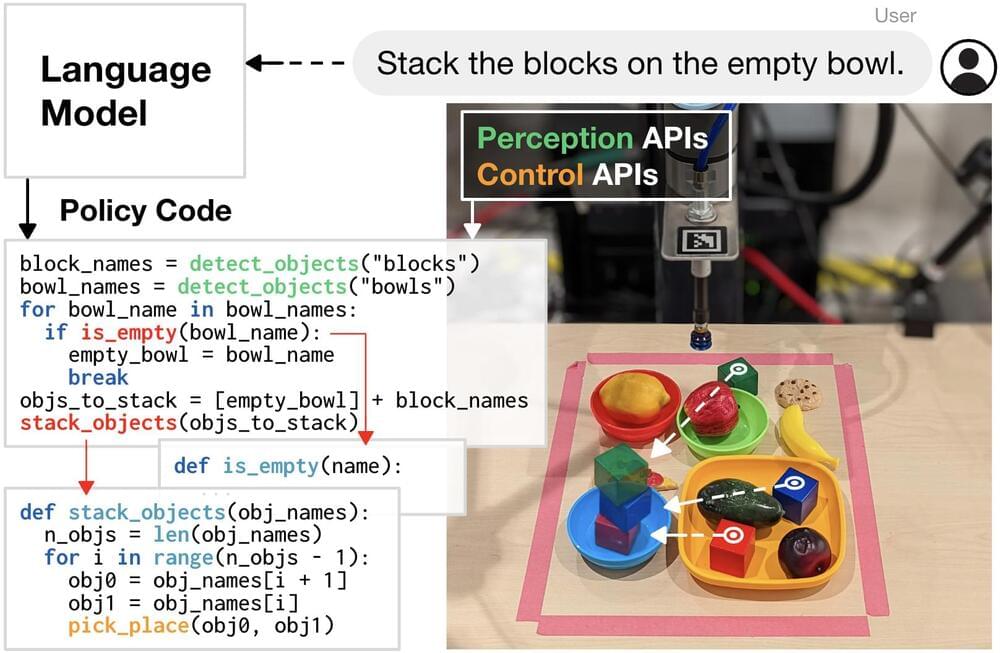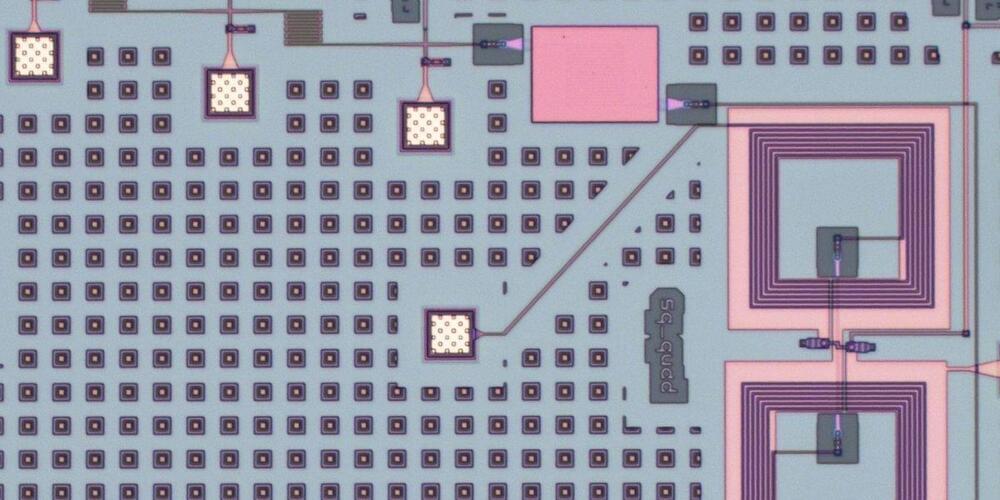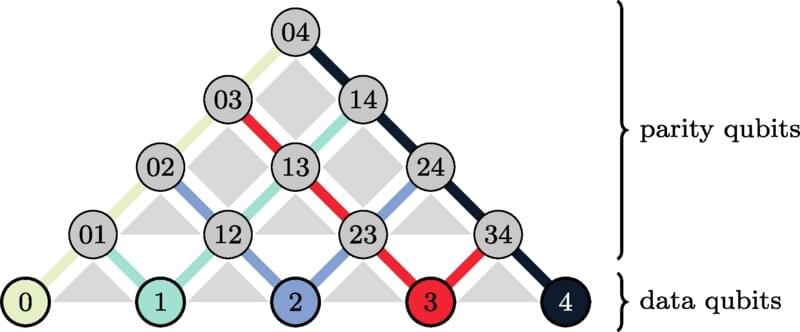People like Jason Calacanis and David Sacks could play a huge role in charting the social media platform’s future—for better or worse.
Brain changes in autism are comprehensive throughout the cerebral cortex rather than just particular areas thought to affect social behavior and language, according to a new UCLA-led study that significantly refines scientists’ understanding of how autism spectrum disorder (ASD) progresses at the molecular level.
The study, published today in Nature, represents a comprehensive effort to characterize ASD at the molecular level. While neurological disorders like Alzheimer’s disease or Parkinson’s disease have well-defined pathologies, autism and other psychiatric disorders have had a lack of defining pathology, making it difficult to develop more effective treatments.
The new study finds brain-wide changes in virtually all of the 11 cortical regions analyzed, regardless of whether they are higher critical association regions—those involved in functions such as reasoning, language, social cognition and mental flexibility—or primary sensory regions.
Thumbnail Inspiration:
https://www.youtube.com/c/DigitalEngine/videos.
Credit:
https://bit.ly/3ggrNND
Many people are scared of artificial intelligence or AI, and it is not hard to see why! The.
advances made in that field of technology are mind-boggling, to say the least! One such scary.
outcome of AI is Google’s AI, which, before it was switched off, ominously revealed one thing.
billions of people have spent a lifetime trying to discover; the purpose of life! What did Google’s.
AI say the purpose of life is? Can AI truly become smarter than us? What does AI becoming.
more intelligent than humans mean? In this video, we dive deep into Google’s Artificial.
Intelligence and what it revealed was the purpose of life before being switched off!
Disclaimer Fair Use:
1. The videos have no negative impact on the original works.
2. The videos we make are used for educational purposes.
3. The videos are transformative in nature.
4. We use only the audio component and tiny pieces of video footage, only if it’s necessary.
DISCLAIMER:
Our channel is purely made for entertainment purposes, based on facts, rumors, and fiction.
Copyright Disclaimer under section 107 of the Copyright Act 1976, allowance is made for “fair use” for purposes such as criticism, comment, news reporting, teaching, scholarship, education, and research. Fair use is a use permitted by copyright statutes that might otherwise be infringing.
Months later, the trio of scientists published a paper that found that a virus, not a novel strain of bacteria like some within the scientific community originally thought, was to blame. Over the following decades, other scientists unfurled the gnarly branches of the large influenza family tree, gathering enough information to formulate a vaccine, which (hopefully) most of us get before every flu season.
But here’s the catch: Influenza is a master shapeshifter. Every year, strains of the virus that infect humans — influenza type A and B — evolve in ways that evade vaccines and, subsequently, our immune systems. This results in uneven vaccine effectiveness from year to year and also undermines efforts to pack a flu shot with a broad, long-lasting immune punch.
But we may have an ace in the hole thanks to mRNA, the same technology used for our Covid-19 vaccines. In a study published Monday in the journal Proceedings of the National Academy of Sciences, researchers at the University of Pennsylvania, Icahn School of Medicine at Mount Sinai, and other institutions have cooked up an mRNA-based influenza vaccine that targets four viral proteins that tend to remain the same across different strains of influenza.
“We grow them in huge bioreactors in just three weeks — while regular cannabis takes 14 to 23 weeks,” Sobel said. “Our tech can also significantly increase the levels of active ingredients, as a percent of the weight, versus what is found normally in the plant.”
An Israeli company has cloned hemp cells and used a bioreactor to grow them into a substance with all the active compounds of cannabis — and 12 times the potency.
BioHarvest Sciences says the breakthrough could make the medical benefits of cannabis available in cheaper, cleaner and greener form. It has started applying for the necessary licenses to manufacture and sell its product for medical use in Israel and the United States.
“We don’t grow the plant at all,” BioHarvest CEO Ilan Sobel told The Times of Israel. Instead, the process involves “replicating” cells taken from a hemp plant in big tanks called bioreactors to produce huge numbers of identical cells.
Robots That Write Their Own Code
Posted in robotics/AI
A common approach used to control robots is to program them with code to detect objects, sequencing commands to move actuators, and feedback loops to specify how the robot should perform a task. While these programs can be expressive, re-programming policies for each new task can be time consuming, and requires domain expertise.
What if when given instructions from people, robots could autonomously write their own code to interact with the world? It turns out that the latest generation of language models, such as PaLM, are capable of complex reasoning and have also been trained on millions of lines of code. Given natural language instructions, current language models are highly proficient at writing not only generic code but, as we’ve discovered, code that can control robot actions as well. When provided with several example instructions (formatted as comments) paired with corresponding code (via in-context learning), language models can take in new instructions and autonomously generate new code that re-composes API calls, synthesizes new functions, and expresses feedback loops to assemble new behaviors at runtime.
Artificial-intelligence systems are increasingly limited by the hardware used to implement them. Now comes a new superconducting photonic circuit that mimics the links between brain cells—burning just 0.3 percent of the energy of its human counterparts while operating some 30,000 times as fast.
In artificial neural networks, components called neurons are fed data and cooperate to solve a problem, such as recognizing faces. The neural net repeatedly adjusts the synapses—the links between its neurons—and determines whether the resulting patterns of behavior are better at finding a solution. Over time, the network discovers which patterns are best at computing results. It then adopts these patterns as defaults, mimicking the process of learning in the human brain.
We continue our look at possible explanations why life may be very rare in the Universe by examining our planet itself, and looking at which of its characteristic might be important to intelligence developing and how improbable those traits are for a given planet in a given solar system.
Visit our Website: http://www.isaacarthur.net.
Join the Facebook Group: https://www.facebook.com/groups/1583992725237264/
Support the Channel on Patreon: https://www.patreon.com/IsaacArthur.
Visit the sub-reddit: https://www.reddit.com/r/IsaacArthur/
Listen or Download the audio of this episode from Soundcloud: https://soundcloud.com/isaac-arthur-148927746/fermi-paradox-…rare-earth.
Cover Art by Jakub Grygier: https://www.artstation.com/artist/jakub_grygier.
Graphics Team:
Edward Nardella.
Jarred Eagley.
Justin Dixon.
Katie Byrne.
Misho Yordanov.
Murat Mamkegh.
Pierre Demet.
Sergio Botero.
Stefan Blandin.
Script Editing:
Andy Popescu.
Connor Hogan.
Edward Nardella.
Eustratius Graham.
Gregory Leal.
Jefferson Eagley.
Luca de Rosa.
Michael Gusevsky.
Mitch Armstrong.
MolbOrg.
Naomi Kern.
Philip Baldock.
Sigmund Kopperud.
Steve Cardon.
Tiffany Penner.
Music:
Lombus, “Cosmic Soup“
Markus Junnikkala, “A Memory of Earth“
AJ Prasad, “Aether“
Lombus, “Hydrogen Sonata“
Dan McLeod, NeptuneUK, “Mysterious Universe“
Kevin MacLeod, “Spacial Winds”
The computing power of quantum machines is currently still very low. Increasing performance is a major challenge. Physicists at the University of Innsbruck, Austria, now present a new architecture for a universal quantum computer that overcomes such limitations and could be the basis of the next generation of quantum computers soon.
Quantum bits (qubits) in a quantum computer serve as a computing unit and memory at the same time. Because quantum information cannot be copied, it cannot be stored in memory as in a classical computer. Due to this limitation, all qubits in a quantum computer must be able to interact with each other.
This is currently still a major challenge for building powerful quantum computers. In 2015, theoretical physicist Wolfgang Lechner, together with Philipp Hauke and Peter Zoller, addressed this difficulty and proposed a new architecture for a quantum computer, now named LHZ architecture after the authors.
CNN
—
A single dose of a synthetic version of the mind-altering component of magic mushrooms, psilocybin, improved depression in people with a treatment-resistant form of the disease, a new study found.
The randomized, double-blind clinical trial, which authors called “the largest of its kind,” compared results of a 25-milligram dose to a 10-milligram and 1-milligram dose of a synthetic psilocybin, COMP360, that was administered in the presence of trained therapists.
Results of the study, published Wednesday in The New England Journal of Medicine, found “an immediate, fast, rapid-acting, sustained response to 25 milligrams (of COMP360),” said study coauthor Dr. Guy Goodwin, a professor emeritus of psychiatry at the University of Oxford in the United Kingdom.
A single treatment of synthetic psilocybin, the mind-altering ingredient in magic mushrooms, improved mood in people with treatment-resistant depression within three weeks, new company-sponsored research found.









